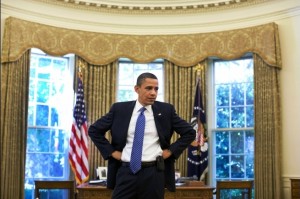
"Auto dealer-lenders offering transparent and fair financing products to their customers should welcome these reforms."
As the spring selling season arrives, so does a proliferation of car advertising, with seemingly the same resilience and growth as the dandelions that survive each winter and take over your lawn.
In the ads, dealers promise low interest rates, high trade-in allowances and free or low-cost options, among other enticements. If only the promises were true at face value and without their many qualifications.
Right now the U.S. Senate is wrestling with the details of a contentious financial-regulation bill (S 3217), which would create a new Bureau of Consumer Financial Protection, and curb abusive practices such as ‘bait and switch” where one interest rate or down payment is advertised, but much higher ones substituted.
There are also rules governing other questionable practices, such as the failure to pay off liens on trade-in vehicles, or so-called conditional loan agreements where terms can change. These are all reasonable propositions in the view of consumer advocates.
The National Automobile Dealer Association is lobbying to have car dealers exempt from some of the proposed reforms, claiming not to do so would “unfairly increase federal regulation over dealerships and potentially eliminate dealer-assisted financing.” (See NADA Fighting Wall Street Financial Reform)
The debate has become so contentious that President Obama issued a statement directly taking on the dealers.
“Claims by opponents of reform that this legislation unfairly targets auto dealers are simply mistaken.,” Obama said. “The fact is, auto dealer-lenders make nearly 80% of the automobile loans in our country, and these lenders should be subject to the same standards as any local or community bank that provides loans. Auto dealer-lenders offering transparent and fair financing products to their customers should welcome these reforms, which will make their competitors who don’t play by the rules compete on a level playing field.”
“We simply cannot let lobbyist-inspired loopholes and special carve-outs weaken real reform that will empower American families. I urge the Senate to continue to defeat the efforts of special interests to weaken protections for all American consumers,” said Obama.
Questioning Pricing
You don’t have to wait for the debate in Washington to sort itself out. A quick phone call will go a long way toward saving you the time of a disappointing and time-consuming dealership visit where you will find that there is the fine print restricting the offers. You should also check with the local Better Business Bureau about the firm’s reputation.
While many factors come into play with these special “act now” offers, here is a quick checklist of questions you should ask before you ever step foot into a dealership:
- Will you be charged a higher price for the car to qualify for the low-rate financing?
- Would the price be lower if you paid cash, or supplied your own financing from your bank or credit union?
- Does the financing require a larger-than-usual down payment – say 25 or 30%?
- Are there limits on the length of the loan?
- Are you required to repay the loan in a condensed period, say 24 or 36 months?
- Is there a significant balloon payment —possibly several thousand dollars — due at the end of the loan? (Bullet is a better term here than balloon.)
- Do you have to buy special or extra merchandise or services such as rustproofing, an extended warranty, or a service contract to qualify for a low-interest loan?
- Is the financing available for a limited time only? Some merchants limit special deals to a few days or require that you take delivery by a certain date.
- Does the low rate apply to all cars in stock or only to certain models?
Are you required to give the dealer the manufacturer’s rebate to qualify for financing?
Questioning Other Promotions
Other advertisements promise high trade-in allowances and free or low-cost options. Some dealers say they sell the car for a stated amount over the invoice. So here are more questions to ask:
- Does the advertised trade-in allowance apply to all cars, regardless of their condition?
- Are there any deductions for high mileage, dents, or rust?
- Does the larger trade-in allowance make the cost of the new car higher than it would be without the trade-in? (You might be giving back the big trade-in allowance by paying more for the new car )
- Is the dealer who offers a high trade-in allowance and free or low-cost options giving you a better price on the car than another dealer who does not offer promotions?
- Does the “dealer’s invoice” reflect the actual amount that the dealer pays the manufacturer? Here you should look at (consumer or automotive publications for information about what the dealer pays.)
- Does the “dealer’s invoice” include the cost of options, such as waterproofing or fabric protection that already have been added to the car? Is one dealer charging more for these options than others are?
- Does the dealer have cars in stock that have no expensive options? If not, will the dealer order one for you?
- Are the special offers available if you order a car instead of buying one off the lot?
- Can you take advantage of all special offers simultaneously?
In addition, when it comes to financing, you are limited to the financing options offered by a particular dealer. Before you commit to a deal, check to see what type of loan you can arrange with your bank or credit union.
Once you decide which dealer offers the car and financing you want, read the invoice and the installment contract carefully. Check to see that all the terms of the contract reflect the agreement you made with the dealer. If they do not, get a written explanation before you sign. Careful shopping will help you decide what car, options, and financing are best for you.
